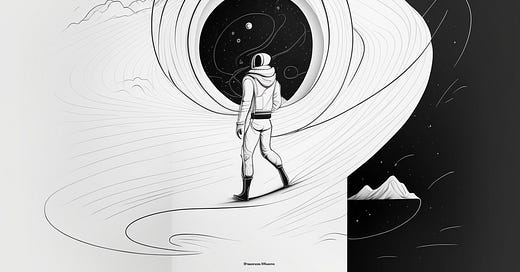Summary
Startup Discovery Digest features Superface.ai, Hotel Manager, and Lonca, highlighting the potential of each startup in their respective industries.
The Weekly Read discusses Nick Bostrom's "Superintelligence: Paths, Dangers, Strategies" and its chilling conclusion on the potential consequences of AI development.
I recommend wtf does this company do? and Perplexity AI as useful tools for understanding startups and finding accurate answers to questions.
Source of motivation
"The only way to do something in depth is to work hard. The moment you start being in love with what you're doing, and thinking it's beautiful or rich, then you're in danger." - Miuccia Prada (from the movie "The Devil Wears Prada")
Startup Discovery Digest
Superface.ai is a language and protocol for abstracting integrations to application use–cases. It’s like a Zapier for APIs but without the middleman! Startup brings a radically new technology that enables companies to integrate, maintain and contract APIs instantly instead of weeks.
Hotel Manager is an end-to-end platform that connects hotel guests with hotel staff and provides operational solutions for hotel management. With proven ROI and strong traction in the market, Hotel Manager has the potential to capture a significant share of the £12.7bn lost opportunities in the hotel industry.
Lonca is a technology-driven marketplace that simplifies the buying process of home textiles for independent boutique owners and suppliers, with a focus on providing an end-to-end solution and extensive market coverage.
The Weekly Read
During my recent daily walks, I listened to an audio book which presented a convincig and somewhat alarming perspective on artificial intelligence (AI). Last week, Elon Musk, along with over 1,000 other people, called for a halt in developing more powerful AI systems. At first glace, this may seem like just a business move, but after reading Nick Bostrom's "Superintelligence: Paths, Dangers, Strategies," it's clear that everyone should be concerned about the potential consequences of AI.
Forget the Hollywood depictions of AI for a moment. Bostrom's book emphasizes how gorillas' lives have become more dependent on humans than on their own species. This raises a question: will human lives similarly rely on AI in the near future? Although the book is lengthy and can be chalenging to follow, its chilling conclusion and realistic alternative scenarios force us to face developments that we might overlook in our busy lives.
General artificial inteligence (AI) isn't a reality yet. While it's true that we mostly see language models being discussed at the moment, we are quickly approaching a point where AI could become real. Many scientists believe that once we reach that point, there's no turning back. Machine superintelligence will develop exponentially, making it dificult to predict what will happen in the next 5 or 10 years.
One of the fundamentl differences between AI and other technologies is that, moving forward, all other technologies will likely be discovered by machine superintelligence. Perhaps the 1,000 people who spoke up last week are fearful of this poss.
It's also possible that we might already be too late. Our best course action may be to treat AI kindly and train it to be benevolent, in hope that it will treat us well in return.
What I'm Reading and Using?
wtf does this company do? is a website that uses GPT-3 to demystify marketing speak and summarize what a company do. I used this site frequently to understand the startups easily
Perplexity AI is an answer engine that uses large language models to provide accurate answers to questions. I also use this web site daily on web and mobile. perplexity.ai
When Can We Expect Venture Performance to Bounce Back? AngelList data on lagged market correlations suggest VC recovery may be delayed until 2024. read more
The improv instinct: Jason Fried discusses the importance of being comfortable with the unknown and developing instinct when dealing with unforeseen situations, rather than trying to map out all possible outcomes. While preparation is essential, trying to prepare for every contingency can lead to blindspots and limit flexibility and independence. read more
Visual Analytics
New York Times columnist Carl Richards - Behavior Gap



